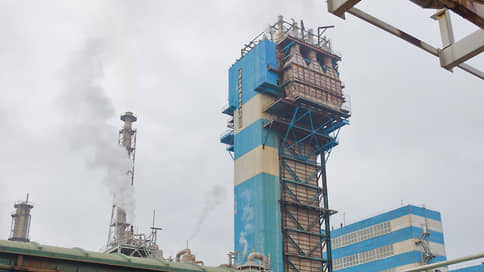Russian exports have a long carbon footprint
[ad_1]

Among all suppliers to EU countries, Russian exporters will face the greatest additional financial burden at the end of the transition period for the implementation of transboundary carbon regulation (TUR), according to a study by Kept. This will happen despite the fact that supplies of products from the Russian Federation falling under the mechanism decreased by more than 40% in 2022. If exports remain at the current level, the largest volume of payments will fall on suppliers of ferrous metallurgy products and fertilizers, Kept estimates.
The largest average annual additional financial burden on goods exported to the EU and the UK after the entry into force of the transboundary carbon regulation mechanism will fall on Russia, according to a study by Kept. For Russian companies, this figure in 2026–2035 could average €4.86 billion (range – from €3.39 billion to €6.33 billion, depending on the volume of specific emissions for exported products). For Chinese suppliers, the amount of payments for TUR may amount to €3.43 billion, for Indian suppliers – €2.43 billion, for Brazilian suppliers – €1.64 billion. Exporters from Algeria and Egypt will also face significant amounts of payments.
Let us recall that for now the mechanism of the border tax on imports has been approved only in EU countries – it was a response to the disproportion in the fiscal burden between domestic producers and importers (note that similar initiatives are already emerging within the EAEU; Kazakhstan is more actively implementing carbon regulation than other countries). Full implementation of the mechanism in the EU is planned for 2026. From this moment on, free quotas within the framework of the quota trading system for the TOUR sectors are gradually being abolished – importers will have to purchase certificates at exchange prices. In the meantime, from October 1, 2023, importers to the EU will begin to report on the carbon footprint of their products (during the transition period, only direct greenhouse gas emissions are taken into account). Regulation currently covers six items: cement, iron and steel, electricity, aluminum, fertilizers and hydrogen.
Russian supplies of regulated products to the EU have decreased significantly compared to previous years: with a general drop in imports of such goods by 4% last year (and an increase of 10% by 2019), Russian exports to the EU in physical volumes fell by 41% compared to the past and by 29% by 2019. In contrast, imports from the Middle East and North Africa grew by 80%, Asia by 69%, Turkey by 25%, and India by 72%. Russian supplies of aluminum and aluminum products decreased by 30%, electricity by 65%, mineral fertilizers by 32%, and ferrous metallurgy products by 28%. As a result, Russia’s share in total imports of NS aluminum decreased from 16% to 10%, electricity – from 22% to 7%, fertilizers – from 38% to 21%, iron and steel – from 20% to 14%.
However, Kept predicts that, despite the fall in supply volumes, Russia will retain its status as a significant supplier of carbon-intensive goods to the EU, which will be facilitated by “the restoration of key supply chains and stabilization of demand for carbon-intensive products within the EU.” The largest volume of payments is expected to be for the export of ferrous metallurgy products and fertilizers; to a lesser extent this will affect the supply of aluminum.
The new financial burden will depend on the price of carbon on the EU market and the acceptance of national emissions trading systems. Current estimates of this burden on goods exported from the Russian Federation to the EU and the UK are already almost twice as high as the estimates at the end of 2021, the authors note. “There are clear reference dates for the start of reporting within the TUR, dates for applying fiscal impact, but the key uncertainty remains – these are export volumes. In our forecast, we included a conservative scenario with stabilization of Russian exports,” explains Evgeniy Tananaiko, director of the operational risks and sustainable development group at Kept.
[ad_2]
Source link






